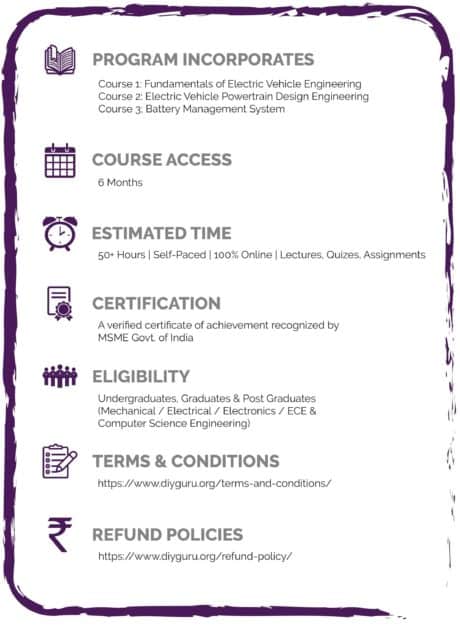Description
What is a nano degree?
DIYguru is an online worldwide community for young learners from all around the world to dig into the ecosphere of technology. With its vast array of online courses to choose from. These courses are put together for all curious minds looking forward to establishing a career in the field of computer sciences.
Nanodegree Programs are industry-recognized credential premeditated for students to groove their skills or establish their career. With the cooperative effort of our proficient teams and industry leaders, Nanodegree Programs are curated to provide a proactive learning skill of forthcoming and contemporary computer technologies.
Nanodegree Program focuses broadly on job-readiness and covers every fundamental skill required to becoming successful in your career. The Nanodegree Programs profoundly focus on present industry necessities and career outcomes. The Nanodegree Programs are divided into topic-wise modules which in turn comprise of short video lectures, exercises, quizzes, and projects to enhance the conception of the topic. The courses are imparted by highly intellectual mentors who have appropriate industrial experience. Industry-relevant in the curriculum certifies that the students are prepared to take up industrial challenges. The Nanodegree programs enable students to network one-on-one with various industry experts as a form of mentorship support to the students.

Learning Outcomes
- Know about different modules of Electric Vehicles.
- Understand the underlying concept behind Power Electronics & Battery Management System.
- Know about the effects of external factors and assumptions taken for designing the vehicle and its power train.
- Understand the mystery of chemistry within batteries.
- Mentorship by Industry Experts.
- A student shall get project assistance.
- Career mentorship in Electric/Green-Energy fields.
- Develop to learn and apply new theories, concepts, and methods.
- Evaluate, model and test the operation of electrical systems and components for automotive applications.
- Demonstrate a thorough understanding of electrical power conversion and power flow.
- Introduction to management of Li-ion batteries
- Introduction to Battery Management Systems (BMS) for LIB
- Summarize the basic components and functionality of the Battery Management System
- Understand the Battery Management System (BMS) components and function
- Discuss the factors that influence battery performance and required protection schemes
Opportunities & Forecast
- Increase in demand for fuel-efficient, high-performance, and low-emission vehicles along with stringent government rules and regulations toward vehicle emission supplements the growth of the electric vehicle market.
- Technological advancements and proactive government initiatives supplement the growth of the electric vehicle market.
- The global electric vehicle market was valued at $162.34 billion in 2019, and is projected to reach $802.81 billion by 2027, registering a CAGR of 22.6%.
- Asia-Pacific was the highest revenue contributor, accounting for $84.84 billion in 2019, and is estimated to reach $357.81 billion by 2027, with a CAGR of 20.1%.
- North America is estimated to reach $194.20 billion by 2027, at a significant CAGR of 27.5%.
- Asia-Pacific and Europe collectively accounted for around 74.8% share in 2019, with the former constituting around 52.3% share.
- North America and Europe are expected to witness considerable CAGRs of 27.5% and 25.3%, respectively.
- The cumulative share of these two segments was 40.1% in 2019, and is anticipated to reach 51.0% by 2027.
Source: Allied Market Research
















